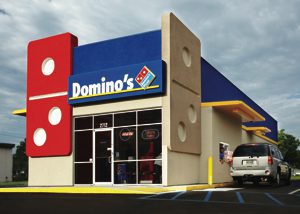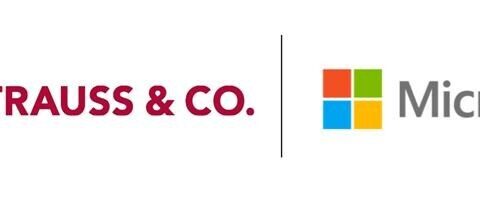With customer data security and current economic concerns top-of-mind at Domino’s, the 8,200-store pizza delivery chain expedited the implementation of new thin-client POS operating platforms for its stores. While in the past Domino’s may have rolled out this type of upgrade during the course of 18 months or more, this POS upgrade went out to 550 stores in six weeks.
Motivated by recent credit card security breaches, Domino’s super-charged its previously conservative implementation strategy, with great success. “It really got everyone focused on the same goal for a very short period of time,” says Wayne Pederson, VP of operations technology for Domino’s. “We started with our corporate-owned stores and now this is our template for all implementations.”
Crunching the implementation time did create some temporarily higher help desk costs, and Domino’s needed assistance from Microsoft to script the quicker process, but those minor adjustments were worth the resulting time savings, says Pederson. “We have found that it is much better not to prolong the pain and agony of transition time.”
SAVINGS FOR STORE OWNERS
The new, more secure thin-client POS operating platforms cost Domino’s franchisees $17,000, down from $25,000 for the previous system. Domino’s switched from full PCs at each workstation to an entire new Microsoft architecture that features thin client architecture.
At press time, more than half of Domino’s 8,200 stores have made the switch from Microsoft Server 2000 to Microsoft Server 2003, Pederson says, and more stores continue to make the switch on a daily basis. “The new systems provide increased operating speed, improving the overall performance of the application,” he notes.
Domino’s also is realizing savings in store downtime because each store now has two server configurations. If one goes down it can easily be swapped out with the other. “In the past stores would close down for two or three days until we were able to ship them a new server,” says Pederson. “They can’t function without their computer systems because they simply don’t know how to take manual orders.”
CUSTOMER DATA CUTS
The thin client architecture has allowed Domino’s to reduce the amount of customer information stored at individual workstations, helping the chain achieve compliance with Payment Card Industry (PCI) data security standards. “At one point we were storing credit card information on the individual workstations,” explains Pederson. “Now we are no longer exposed on the store level.”
Pederson urges other companies to secure their customer information as soon as possible. “The worst thing to have happen is a situation where consumers lose confidence in your ability to handle their private information,” he says. “That was our impetus to move as quickly as we did with this implementation.”
Domino’s is using a full suite of Microsoft products to offer the most robust system for its franchisees, says Pederson. Those components include Microsoft Windows Server System, Microsoft System Center Operations Manager 2007, Microsoft Forefront, the 2007 Microsoft Office system and Windows Servicer Terminal services.













